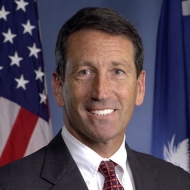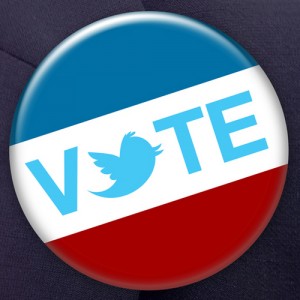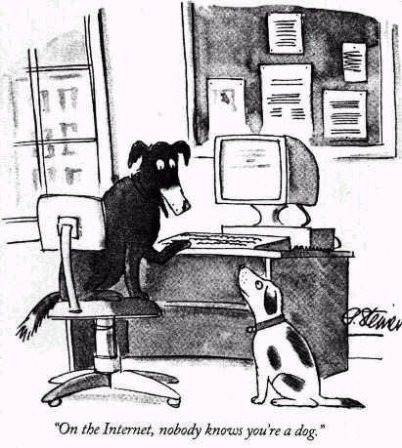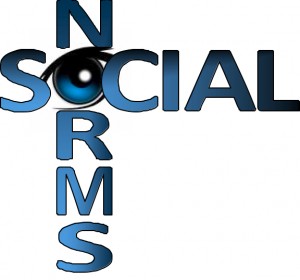
by Alex Patton | May 17, 2013 | Political Consulting, Political Research
The calls are starting – first time candidates and incumbents are starting to call in order to explore potential campaigns in 2014.
Awhile ago, I wrote a check list for first time candidates, and while I still stand by this simple checklist, I have something additional to add to the list.
You need a political consultant.
Why? Let’s explore, because its Science Friday.
Why you need a political consultant
Setting aside hindsight bias, let’s begin with that fact that after 30 years in political consulting and political campaigns, I don’t know many things for certain, but I know the following to be absolutely true:
Our brains are designed to take shortcuts and often unwillingly and sometimes even willingly deceive us.

Our brains deceive & fail us
Let’s be honest, if you…or ‘someone you know’…is exploring a run for office, you most likely have a healthy ego. It is this healthy ego that allows you…or your friend… to feel like you have something to offer the public that they should “buy.”
Great.
The moment you verbalize your intention to possibly consider a run for office, people & your own brain begin to lie to you – even more than normal.
Why People Lie
Your friends lie because they like you and don’t want to have a candid conversation.
Your friends are not intentionally lying, but they will say thinks like “I think you would be great.”, “We need good people like you to run.”, “You would be leaps and bound better than the nit-wits we have now.”, and various other pleasant things.
People who do business with the office you seek lie because you may win.
They are looking out for the own self interest and they will be very nice to you, especially in the early stages of exploration.
Your friends and people lie to you because they don’t know better.
Your friends & others may give you an honest opinion that you may make a fantastic public official, but don’t know the first thing about political realities, political campaigns, or the campaign process.
Why Your Own Brain Lies to You
This entire Science Friday will be dedicated to the study of irrationality, heuristics and fallacies.
Let’s just state two things as facts as a summary of the entire field of research & literature:
- Our brain has two parts, an emotional part and a rational part. These parts must work together and are often in conflict.
- Our brains take shortcuts (heuristics) in order to make order of the world and to survive.
If one does not have a meta experience and take the time to think about thinking, you are helpless to fight the shortcuts your brain is conditioned to take.
Even if you have a meta-experience, if you do not build deliberate systems to force yourself to fight your brain, you are helpless.
This is exactly why intelligence analysts who are dealing with far more complex issues other than “should I run for office?” build these critical thinking processes into their workflow.
Bottom line: our hunches, our guts, our thoughts are often just dead wrong.
Let’s explore some common issues:
Confabulation
As humans, we are often completely ignorant of why we make the decisions we do (like run for office). We make the decision, then perform mental gymnastics to rationalize the decision. It happens lighting quick, unconsciously and then we rationalize our decision by filling in our memories and just making stuff up. We do this so often we are blissfully unaware that our brains are doing it. We simply must rationalize the decisions we make.
Fun fact: If you are asking about running for office, you want to run for office. Most likely, you are asking around seeking a rational explanation to justify your decision.
The Dunning-Kruger Effect
I don’t want to insult you, but all humans (even great political consultants) fall subject to the Dunning-Kruger effect.
This effect tells us that most of us are extremely poor at estimating our own competences and the difficulty of the complex tasks in front of us. True, the effect is more pronounced among unskilled labor, but this makes the trap even more dangerous for aspiring politicians.
As David McRaney tells us, “The less you know about a subject, the less you believe there is to know in total. Only once you have some experience do you start to recognize the breadth and depth you have yet to plunder.”
“In the modern world the stupid are cocksure while the intelligent are full of doubt.” – Russell
Political campaigns are complex operations that unless you have participated in them before, you can’t possibly know what it is like to be a candidate.
Here is another issue, just because you have participated in a campaign as a volunteer/manager/staffer, you can’t possibly know what it is like to be a candidate.
Side note: This especially holds true when it comes to the area of raising money. Remember there is a major difference between raising money for your favorite charity/business and raising money for your own political campaign. I routinely take the amount a first time candidate tells me they can raise, cut it in half and cut it in half again. More than likely, this is the amount they will raise.
Subjective Validation
Remember those encouraging words your friends tell you? You are falling subject to subjective validation.
The subjective validation tells us that people are prone to believing vague statements and predictions are true, especially if they are positive and address you personally.
The point

These are just the tip of the iceberg
These are just three of the cognitive traps that we as humans fall into. Worse? We fall prey to them all the time without noticing, and these are just the TIP of the iceberg. (To see a more comprehensive list – look to Wikipedia or look at the additional reading listed at the bottom of this post.)
The Solution
Lucky for you and your brain, there is a solution: hire a great political consultant.
Any great political consultant must study brain function. It is our job to understand the decision making process so that we can understand how voters make decisions, how political decisions are made, and how we can affect these processes.
Our job is not only to help you navigate to victory, but also to have the experience and courage to be the check against your brain.
At Ozean, we receive feedback after every campaign cycle that the number one thing our clients appreciate most is our ability to cut through the “fog of a campaign” and be candid – even when it hurts.
Ozean does this by building into our processes the systems to combat not only your cognitive biases but our own cognitive biases. This takes effort, skill, and it takes an understanding of how our brains naturally deceive us.
We are continuously floored by the number of political consultants that are operating on their guts, their rules of thumb, and their own flawed thinking.
In closing, your friends lie to you & your brains lie to you. You need a political consultant to help you navigate these waters, and you better make damn sure your consultant won’t tell you only what you want to hear.
If you would like to discuss your potential and use our critical thinking processes, please do not hesitate to contact Ozean.
Additional Reading
Ariely, Dan (2009-06-06). Predictably Irrational, Revised and Expanded Edition: The Hidden Forces That Shape Our Decisions.
Heuer, Richards (2012-01-17). Psychology of Intelligence Analysis, Central Intelligence Agency.
McRaney, David (2011-10-27). You Are Not So Smart: Why You Have Too Many Friends on Facebook, Why Your Memory Is Mostly Fiction, and 46 Other Ways You’re Deluding Yourself.
Silver, Nate (2012-09-27). The Signal and the Noise: Why So Many Predictions Fail-but Some Don’t.
Sunstein, Cass R.; Richard H. Thaler (2008-04-08). Nudge: Improving Decisions About Health, Wealth, and Happiness (p. 257). Yale University Press. Kindle Edition.
Wikepedia, List of Cognitive Biases

by Alex Patton | May 10, 2013 | Political Consulting, Political Research

Welcome to Science Friday. A day when we look at some research and discuss the findings and/or implications.
When I was on my rant about Mark Sanford’s “win”, I came across this gem from Nate Silver : Sanford and the Electoral Effect of Sex Scandals, which in turn lead me to this study:
by Nicholas Chad Long of St. Edward’s University.
Scandals were categorized on the nature of scandal (abuse of office, financial, sex) to see if there were differences.
The results reveal that those senators seeking reelection while confronting a scandal suffered a six percent decrease from their expected vote. They also attracted higher quality challengers who spent more money against them
Scandals involving immoral behavior hurt incumbents the most, while financial improprieties hurt them the least.
Another KEY quote from the paper is as follows:
For a scandal to have any impact on an election, potential voters have to know about it and care about it. The former is the job of the press. Voters rely on journalists to provide vital information about candidates, so that informed decisions can be made at the ballot box. Though the sources for that information are changing, the valuable role that the press plays in providing it is not (Graber 2009; Iyengar and McGrady 2006).
The study is also worth reading for the review of the literature on the subject. It covers party switching, voter turnout, campaign finance violations, corruption charges, and partisan differences.
Conclusions about Political Scandal

How much is a political scandal worth?
“The coefficients are basically the same. Incumbents committing financial improprieties suffered the smallest decline (4.3%), while those displaying behavior seen as immoral suffered the largest decline (6.5%). This leads one to conclude that voters do not necessarily care about the nature of the transgression, but only that a transgression has occurred.”
“While there was essentially no difference in the number of Democrats or Republicans involved in scandals, the results reveal that voters did punish Republicans slightly more than Democrats. The results also show that incumbents, regardless of party, suffered most from objectionable behavior related to matters of morality, such as sexual indiscretions. The vast majority of incumbents were inclined to seek reelection, even in a hostile environment, rather than abandon their Senate careers. The evidence proves that, in fact, two-thirds were victorious in November. So while scandals blunt the incumbency advantage, they do not eradicate it.”
Gotta love science.
My hypothesis is that candidates not having the advantage of incumbency suffer much greater.

by Alex Patton | May 1, 2013 | Political Media, Political Research
It is science Friday (Wednesday edition), and I am off on an electronic sabbatical after a very difficult week. Therefore, I am admitting right now that I am lazy and this may be the laziest post ever written for Science Friday, but that is still no excuse NOT to bring you a study in the field of politics.
I came across this post on twitter, and I thought it was PERFECT for Science Friday.

Does social media tell us anything about voting behavior?
The working paper is entitled More Tweets, More Votes: Social Media as a Quantitative Indicator of Political Behavior.
Here is the abstract from the authors:
Is social media a valid indicator of political behavior? We answer this question using a random sample of 537,231,508 tweets from August 1 to November 1, 2010 and data from 406 competitive U.S. congressional elections provided by the Federal Election Commission. Our results show that the percentage of Republican-candidate name mentions correlates with the Republican vote margin in the subsequent election. This finding persists even when controlling for incumbency, district partisanship, media coverage of the race, time, and demographic variables such as the district’s racial and gender composition. With over 500 million active users in 2012, Twitter now represents a new frontier for the study of human behavior. This research provides a framework for incorporating this emerging medium into the computational social science toolkit.
DiGrazia, Joseph, McKelvey, Karissa, Bollen, Johan and Rojas, Fabio, More Tweets, More Votes: Social Media as a Quantitative Indicator of Political Behavior (February 21, 2013). Available at SSRN: http://ssrn.com/abstract=2235423 or http://dx.doi.org/10.2139/ssrn.2235423
[Just because I am lazy, does not mean I won’t cite the paper correctly.]
There is a robust conversation going on with one of the authors here.
Conclusion
The most interesting thing from the working paper to me is the following:
First, the data do not include any information about the meaning or context of a name mention (e.g., “I love Nancy Pelosi” vs. “Nancy Pelosi should be impeached”). The relative share of attention compared to the opponent is all that is needed.
Meaning, if you are running for office and people aren’t talking about your positioning in relation to the other candidate(s), you have a problem.

by Alex Patton | Apr 5, 2013 | Political Media, Political Research
In a relatively new study released by the Journal of Computer-Mediated Communication titled “The ‘Nasty Effect:’ Online Incivility and Risk Perceptions of Emerging Technologies”, an interesting theory emerges.
The study measures subjects’ understanding of a science topic after reading online comments posted on the story.
The study has wide ranging possible effects. As noted by others:
Now a study in the Journal of Computer-Mediated Communication suggests that rude comments on articles can even change the way we interpret the news. – NPR
In other words, just the tone of the comments . . . can significantly alter how audiences think about the technology itself.
Researchers found that even knowledge of science did not seem to mediate the effects of the comments. – JS Online
So basically, as political actors who are attempting to affect public opinion, the comments on a news article are almost, if not MORE important than the article itself.
My guess is this has a relationship to the social norm of highlighting the behavior one would like to see adopted and by making a thought public – no matter how vile the thought is – allows others to think that this thought is ‘normal’ and not out-of-line.
For politicians and campaigns, this study is important and your political efforts must now include rapid response to on-line articles whether newspaper, blogs, online TV stations, etc.
Why? It is science and it matters.
Read the study: “The ‘Nasty Effect:’ Online Incivility and Risk Perceptions of Emerging Technologies”

by Alex Patton | Mar 20, 2013 | Political Research

A 2008 study published by the American Political Science Association by Alan Gerber, Donald Green & Christopher Larimer lays out a convincing case of how social pressure can lead to increased voter turnout.
We lamented in a previous blog post, how political pundits are talking about voter turnout incorrectly.
The Science
This study does exactly the type of large scale experiments that the GOP should be doing more of.
This study shows us that by using social norms (rules of conduct that are socially enforced) we can have a greater effect on voter turnout, with some words of caution.
In this experiment, conducted prior to the August 2006 primary election, 180,002 HH were used. HH were assigned to treatment groups and were sent one mailing 11 days prior to the election.
HH were randomly assigned to the control group or 1 of 4 treatment groups. Each treatment group had 20,000 HH and 99,999 were in the control group.
Each HH in a treatment group, received one of the four mailings. The control group received none.
All four treatment groups received the basic message of “DO YOUR CIVIC DUTY – VOTE”
Group 1 “Civic Duty” Group. This group is a baseline. It does little besides emphasizing civic duty.
Group 2 “Hawthorne” Group – Adds to Group 1 a mild form of social pressure. By adding a “Hawthorne effect” or “You are being studied”. It limited social pressure by promising researchers would neither contact nor disclose the results.
Group 3 “Self” Group – Adds more social pressure by informing recipients that who votes is public information and listing the recent voting records of each registered voter in the HH. It also put “VOTED” next to those that voted and a blank spaces to those HH members that had not.
Group 4 “Neighbors” Group – Adds even more social pressure by not only listing the HH voting records, but also the voting records of those living nearby. Like the “Self” mailer, the “Neighbors” tells the group that researchers are planning on updating the chart after the election.
The results
After the election, turnout was measured
| Group |
Turnout
|
Diff
|
|
|
|
| Control Group |
0.297
|
|
| Civic Duty Group |
0.315
|
0.018
|
| Hawthorne Group |
0.322
|
0.025
|
| Self Group |
0.345
|
0.048
|
| Neighbors Group |
0.378
|
0.081
|
The Neighbor group had a 8.1% increase in turnout over the control group.
This is impressive.
As the study states:
It is important to underscore the magnitude of these effects. The 8.1 percentage-point effect is not only bigger than any mail effect gauged by a randomized experiment; it exceeds the effect of live phone calls (Arceneaux, Gerber, and Green 2006; Nickerson 2006b) and rivals the effect of face-to face contact with canvassers conducting get-out-the vote campaigns (Arceneaux 2005; Gerber and Green 2000; Gerber, Green, and Green 2003).
The study does go on to say nicely that the “enforcement of norms is potentially costly” meaning, this technique REALLY pisses voters off.
Also for practitioners to keep in mind, we must ad partisanship into the equation and test; however, it is data worth considering. Read the entire study here.

by Alex Patton | Feb 28, 2013 | Political Media, Political Research
Florida’s Elected Officials’ Score Low Grades in Twitter Sociability, Forgetting the ‘Social’ in Social Media.
Landmark Twitter study released: Politicians talk too much, listen too little
Ozean Media releases the landmark study of Twitter usage of Florida’s elected officials including Federal, Statewide, & State Legislature officials. OMG! Don’t Forget: It’s Social Media: A Report Card of Florida’s Elected Officials Use of Twitter is the most comprehensive review of Twitter usage by Florida’s politicians to date.
“Overall, Republicans earn a C and Democrats an F in twitter usage; however, when we grade on a curve Florida’s Republican officials perform better than the Democratic officials. The good news is there is room for dramatic improvement,” said Alex Patton (@alex_patton), the study’s author.
Questions:
The study researched over a two week period set out to answer the following questions:
- Are Florida’s elected officials using Twitter?
- Is there a digital divide that separates Republican and Democrat elected officials in Florida?
- How are Florida’s elected officials using Twitter?
- Which of Florida’s elected officials could be considered to be embracing Twitter?
- Are there recommendations to be made to Florida’s elected officials in their use of Twitter?
The study represents the most comprehensive look at twitter usage of Florida’s elected officials, aggregating data from multiple sources and comparing the data to twitter superstars such as the University of Florida, President Obama, and Justin Bieber.
Findings of Study:
- As a whole, Florida’s elected officials are using Twitter in greater percentages than the general public.
- Florida’s elected Republican officials are using social media more than Florida’s elected Democrat officials – 57% of Republican elected officials are active users (defined as at least 1 status update in past 7 days) to 34% of Democrat elected officials.
- Republican elected officials are doing significantly better than Democrat elected officials using twitter.
- If not for Florida’s Democratic Congressional Delegation — more specifically @DWStweets who alone accounts for 85% of the number of followers for Democrat elected officials — Florida’s Democrat elected officials would have little social media reach.
- Florida’s elected officials score well on influence, on authority; however,
- Florida’s elected officials score very low on outreach.
- A handful of Florida’s elected officials are embracing Twitter. They are:
| category |
Twitter name |
name |
district |
party |
| USREP |
@RepDennisRoss |
Dennis Ross |
15
|
Republican |
| USREP |
@DWStweets |
D Wasserman Schultz |
23
|
Democrat |
| USREP |
@treyradel |
Trey Radel |
19
|
Republican |
| STSEN |
@Rob_Bradley |
Rob Bradley |
7
|
Republican |
| STSEN |
@DwightBullard |
Dwight Bullard |
39
|
Democrat |
| STREP |
@sethmckeel |
Seth McKeel |
40
|
Republican |
| STREP |
@repclayingram |
Clay Ingram |
1
|
Republican |
| STREP |
@JimmyPatronis |
Jimmy Patronis |
6
|
Republican |
| STREP |
@mattgaetz |
Matt Gaetz |
4
|
Republican |
| STREP |
@jasonbrodeur |
Jason Brodeur |
28
|
Republican |
“Bottom line, when you look at how Florida’s politicians are actually using Twitter, they are forgetting the ‘social’ in social media. The vast majority of Florida’s elected officials appear to be misunderstanding or misusing Twitter by using it as primarily as a broadcast media channel,” continues Mr. Patton.
“For Florida’s elected officials to truly realize the power of Twitter and social media, they must embrace the social part by talking with people, not only talking to people,” concludes Alex Patton.
The study, an executive summary, the study’s methodology, and complete data-set are available for download below.
All are invited to comment on the report using the Twitter hashtag #socialgrade.
Downloads
Press Release
Download Press Release (filetype: pdf)
Study
Download Complete Study (filetype:pdf)
DataSet
Download dataset (Excel Sheet – .xlsx)
Download dataset (Excel Sheet – .xls)
Download dataset (Tab Delimited Txt – .txt)
P.S. A little favor Request
Ozean hopes that in consideration of release of the study for free; you will grant one request:
If you like the study and/or find the the information useful, please share this page using the buttons below.
We thank you!










